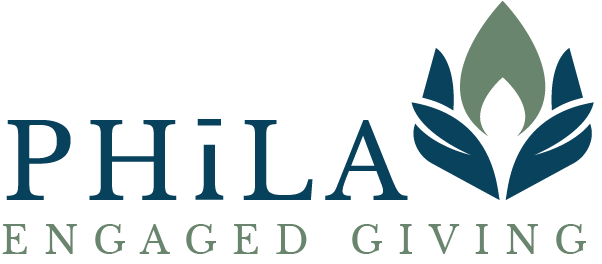By Stephanie Ellis-Smith
If the upheavals of the last few months haven’t left you reeling, I want a dose of what you’re taking. I have been white hot with rage, deeply saddened, stunned numb, and full of hope–sometimes all at the same time! It is cliché to say, but it is true: we are living in unprecedented times and are witnesses to history. There is SO much amazing work being done by nonprofit organizations around the country, but how can all their energy and fire still not be enough to secure our basic rights and general safety?
Donors are increasingly looking for ever more innovative ways to effect change and I am heartened by increasing numbers of givers open to exploring better ways to support change that are more suited to the times in which we live. It is without a doubt a good trend. In addition, we at Phīla also encourage our clients to engage in a bit of self-exploration as well. At its best, philanthropy should be both externally impactful and internally transformational.
Most givers focus on only one question: “What difference do I want to make in my community, nation, or world?” An equally important question is: “What difference do I want to make for myself or my family?” How can we shift from transactional giving to a more holistic philanthropic strategy— one that creates targeted change while also pushing us to grow and share power with the communities and causes we hope to lift up? We believe that digging deep into the “why” of your giving can transform you into a “whole-self giver”: someone who gives fully and intentionally of your wealth, passion and power.
While philanthropy itself isn’t going to solve all the world’s or our problems, it can give us true meaning and purpose by working towards something bigger than ourselves. I know many of you may have already created your mission statement or personal giving priorities. Yet, staying true to that, as well as being responsive to local needs, global crises, and random personal requests can be overwhelming.
Philanthropic advisors can be helpful in times like these. We function as accountability partners, who can help you keep your focus or even adjust what the focus is. We see our role as someone with whom you can learn, experiment, and grow. The goal is to learn by doing so we don’t keep resources on the sidelines while we get organized and try to “figure it out”. The needs are too great and the world is changing too fast. Norms we’ve taken for granted are no longer true or are no longer as we knew them. There’s a tremendous amount of trauma and suffering–almost too much to bear if you follow it closely. And it’s because of all of this change and need, that it’s important to revisit our sense of purpose to connect our words to our deeds.
Philanthropy spends a lot of time talking about how we hope to change society, but let us not forget or downplay how doing this work changes us too. Personal growth and fulfillment, even in social justice philanthropy, is a huge driver and motivator; and not only is it OK, I would say it is necessary.
The vast majority of our clients are using their extensive resources for real social change--taking risks, learning by doing, ceding real power to sector leaders who know what they need. What they have in common is that none say (at least not anymore), “Oh no, this is not about me. It’s about those in need.”
True humility in this work allows one to realize that “I, as a donor, need this as much as you do.” And those of you who have read Dorothy Brown, Edgar Villanueva, Ijeoma Oluwo, or any other person talking about race, wealth, and society knows that this is “your work” too. It requires your whole self to make change–being willing to take real risks and to make oneself vulnerable. Those are among our greatest tools against injustice. And when we situate ourselves in purpose, we will find the courage to take on risks, fund longer term, and give more.
